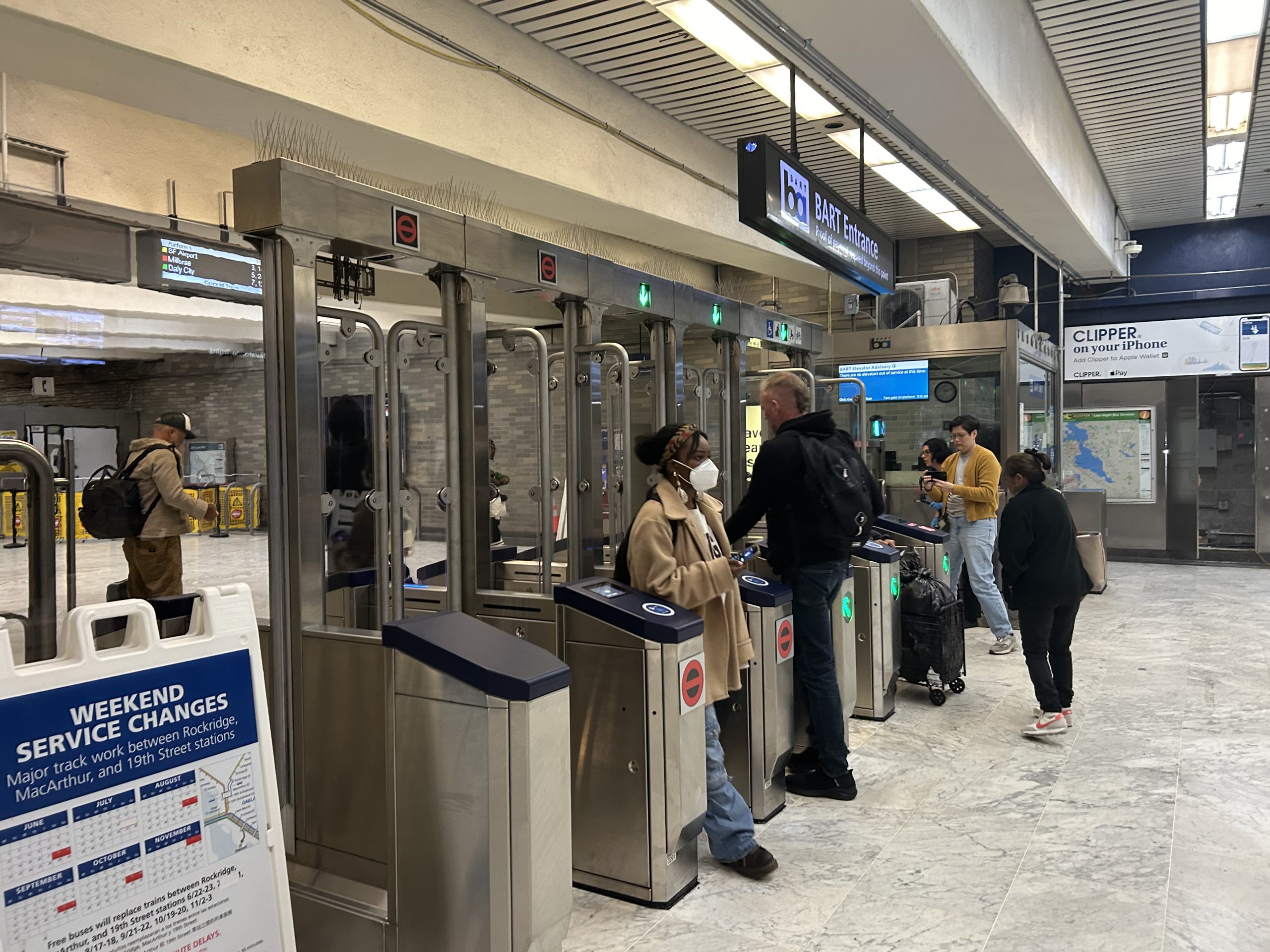BART said Tuesday that train fares will go up 5.5% on Jan. 1.
BART said in a statement the increase will be “to keep pace with inflation so that the agency is able to pay for continued operations and to work toward restoring financial stability.”
BART said its current funding model relies on passenger fares to pay for operations.
The increase is tied to the rate of inflation, minus a half-percentage point. It’s the second such increase — the first took effect Jan. 1, 2024.
The average fare will increase 25 cents, from $4.47 to $4.72.
“We understand that price increases are never welcome, but BART fares remain a vital source of funds even with ridership lower than they were before the pandemic,” BART board vice president Mark Foley said in a statement. “My board colleagues and I voted in June 2023 to spread necessary fare increases over two years rather than catching up all at once. At the same time, we voted to increase the Clipper START means-based discount from 20 percent to 50 percent to help those most in need.”
The fare increase is expected to raise about $14 million per year for operations. Combined with the previous year’s fare adjustment, BART will use this $30 million per year to fund train service, enhanced cleaning, additional police and unarmed safety staff presence, and capital projects.
BART said the regional Clipper START program is an important resource for low-income riders of BART and other Bay Area transit systems. The program is for adult riders with a household income of 200% of the federal poverty level or less. Administered by the Metropolitan Transportation Commission, program participants receive a personalized Clipper card that cuts half the cost of fares on more than 20 transit systems.
Under the program, limited-income riders get 50% off with Clipper START.
People 5 to 18 years old get 50% off with a youth Clipper card. Seniors 65 and over get 62.5% off with a senior Clipper card. The RTC Clipper card was created for passengers under 65 with qualifying disabilities, providing 62.5% off.
BART said the fare increase is the latest adjustment in a strategy to provide BART funding while providing riders predictable, scaled changes to the costs of riding.
In 2004, BART first implemented this inflation-based fare increase program calling for small, regular, less-than-inflation increases every two years, allowing fares to keep up with the cost of providing reliable and safe service.
BART said that even with the fare increase, the agency faces a $35 million operating deficit in fiscal year 2026 and $385 million in fiscal year 2027. Since BART’s model of relying on passenger fares to pay most operating costs is no longer feasible because of the increase in remote work, the agency said it must modernize its funding sources to better match other transit systems throughout the country that receive larger amounts of public funding.












0 comments